For most of us, $500 is a lot of money. Who wouldn’t celebrate if their boss offered them a $500 a month raise?
We reached out to finance experts, money managers and regular people to ask them their best tips for saving an extra $500 a month. While almost all of the answers require some discipline and willpower by the individual, none of them are beyond reach.
There’s no simple, magic bullet that will immediately put an extra $500 in the savings account each month, but most of us can make a few basic changes to make it happen.
Most people will need to implement several or all of these strategies.
Try Reverse Budgeting
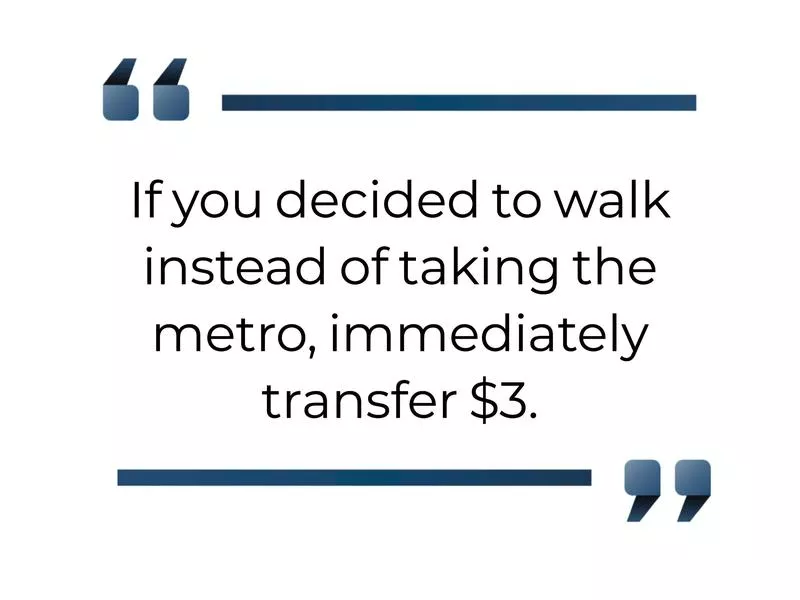
Most financial experts recommend automating saving with automatic transfers and payroll deductions. Danielle Desir of the travel savings Website Thought Card has no problems with that approach, but she also suggests giving a manual approach known as reverse budgeting a shot.
“So let’s say you budgeted $100 for utilities but your bill comes out to $85, immediately transfer $15 into your saving account,” she said. “If you decided to walk instead of taking the metro, immediately transfer $3.”
Instead of allocating funds to different categories like you do when budgeting, with reverse budgeting you’re working with whatever is left over.
“These savings are often forgotten about but if you can keep track of them and act immediately by either investing or saving,” Desir said, “you’ll quickly see your savings grow exponentially.”
Never Spend A $5 Bill
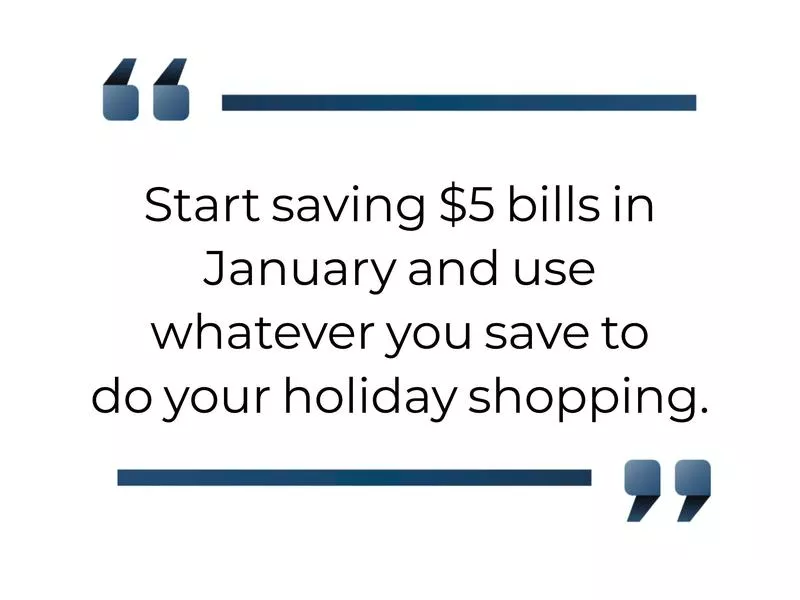
A lot of financial experts recommend using cash, as studies show we’re less likely to overspend when we use cash instead of credit and debit cards. And when you’re using cash, you’re likely to get back the occasional $5 bill.
One way to save extra money is to set aside those $5 bills.
Once a month, once a quarter or once a year, deposit all of those $5 bills in your savings account. Or start saving $5 bills in January and use whatever you save to do your holiday shopping without reaching to the credit cards.
Round Up
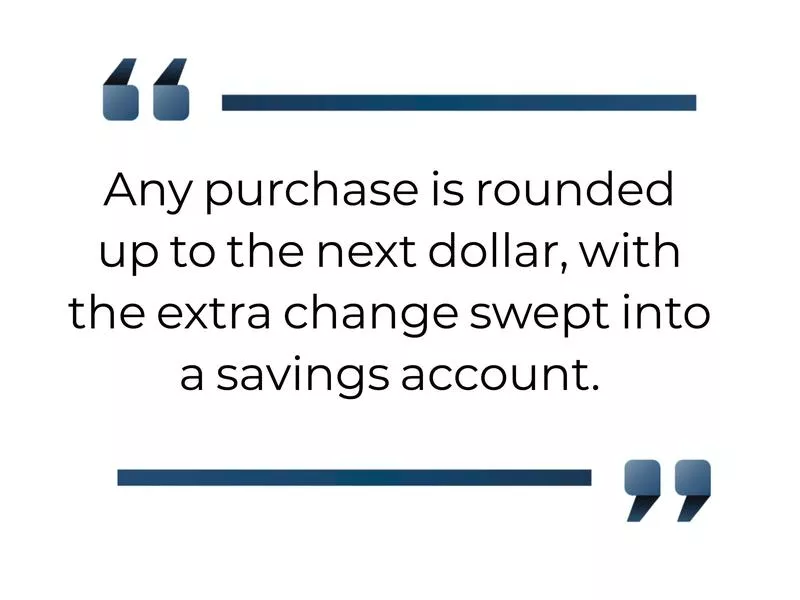
If you are a person who wants to keep using debit cards for purchase, some banks and apps make it easy to follow a round-up savings plan. In this savings method, any purchase is rounded up to the next dollar, with the extra change getting automatically swept into a savings or investment account.
For example, when your bank sees a purchase for $3.43, it debits your checking account $4 and sweeps the extra 57 cents into your savings account.
If your bank doesn’t offer such a service, or you have multiple cards and accounts, there are plenty of apps that will essentially do the same thing. My personal favorite is Acorns, which I have been using for about a year. During that time I have saved over $2,000, which Acorns automatically invests in a mixed fund to help boost my savings even more.
Sell Stuff

One report says that 48 percent of Americans consider their homes to be at least somewhat cluttered with items they no longer use, and 72 percent believe they would gain more space in their homes by purging unused items.
John H. Savin of Savin Wealth in Florida recommends taking a look around your home and find things you are no longer using. If you haven’t used it in six months, it’s a likely candidate you for being something you could sell.
“My 2-year-old son doesn’t use his swing anymore, so I sold it on an online reseller site. In a week I sold it for $70,” Savin said. “Do this with several items and $500 is an easy target.”
Andrew Housser, co-CEO of Freedom Debt Relief, says to take a realistic look at your hobbies, which can cost you as much as $50 to $100 a month on average.
“If you can afford it and you actively participate in the activity, great. It not, though, if the equipment is sitting unused,” Housser said. “If you have not touched your projects in more than a year, consider selling the supplies and equipment.”
Increase Your Auto Insurance Deductible
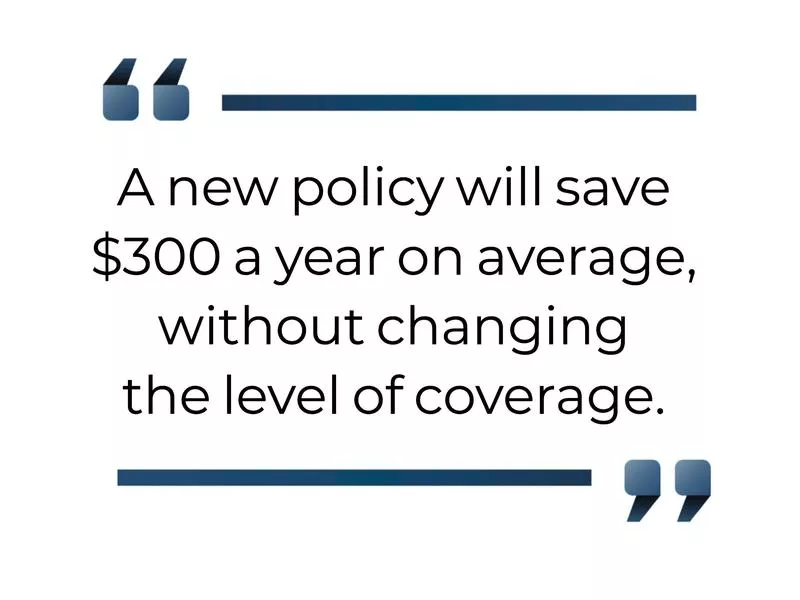
You can probably save $14 per month when you increase your car insurance deductible from $250 to $500, according to CarInsurance.com. Increase that deductible to $1,000, and you’re saving $30 per month.
While you shouldn’t cancel auto insurance entirely, and you need to stash those savings aside until you have enough on hand to pay the deductible if that day ever comes, it’s a sure-fire way to put some extra money aside each month.
And while you’re at it, says Andrea Woroch, a consumer finance expert, when’s the last time you comparison shopped your auto insurance policy? “People who look for a new policy save $300 a year on average, without changing their level of coverage,” Woroch said.
Buy Generic
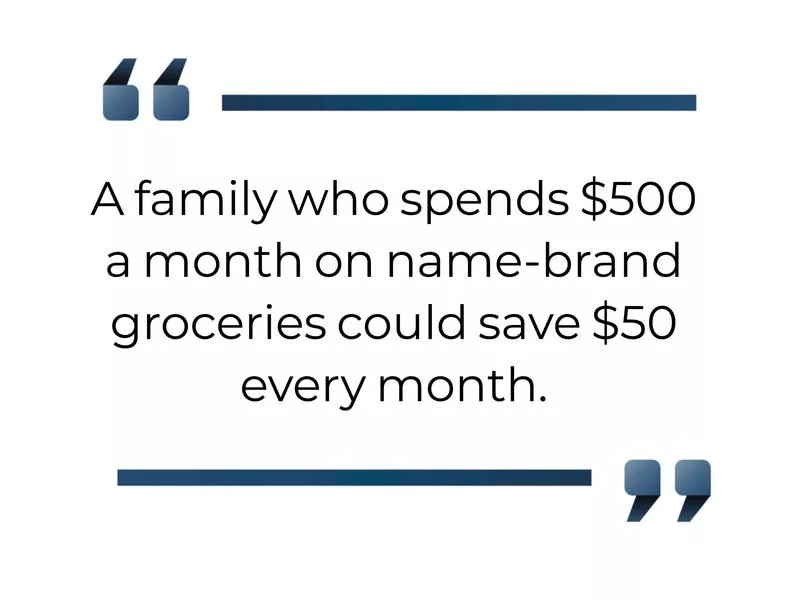
Housser notes that store brands are, on average, 10 percent cheaper than name brands. That can mean big savings at the supermarket.
“A family who spends $500 a month on name-brand groceries could save $50 every month,” he said. “Most store-brand products come with a money-back guarantee, so you can return them to the store if you do not like the taste or quality.”
Use Your Freezer

Americans throw out about 1.3 billion tons of food every year. Beyond the environmental and social costs, that means the average American is spending about $2,225 per year on food that will end up in the trash. Michael Bagala avoids wasting that money by aggressively using his freezer.
“If refrigerated vegetables are getting a bit old do not toss them out. Potatoes, Cabbage, Carrots, Squash can be steamed or lightly boiled. and then placed in the freezer,” he said.
Plan menus that include meals that taste just as good if not better when leftovers are reheated. Bagala likes meatloaf and stews for this purpose, which can also save time when you don’t have to cook dinner from scratch.
Banana Peels and Egg Shells are Not Trash

Bagala also reuses things most of us throw away without a second thought. One man’s trash is another man’s secret to a vibrant garden.
“I cut up all banana skins and first dry them in the sun. They make great natural fertilizer,” he said. “Save the coffee rinds and empty the contents of tea bags since they increase the acidity of the soil which are great for flowering plants. The skin of tangerines and oranges are natural pest repellents in your garden. I grind up egg shells into a powder and add that to my fertilizer mix. It gives me a healthy garden with little cost.”
Compare that to the prize of a 25-pound bag of fertilizer the next time you’re at Home Depot.
Check Your Data Usage
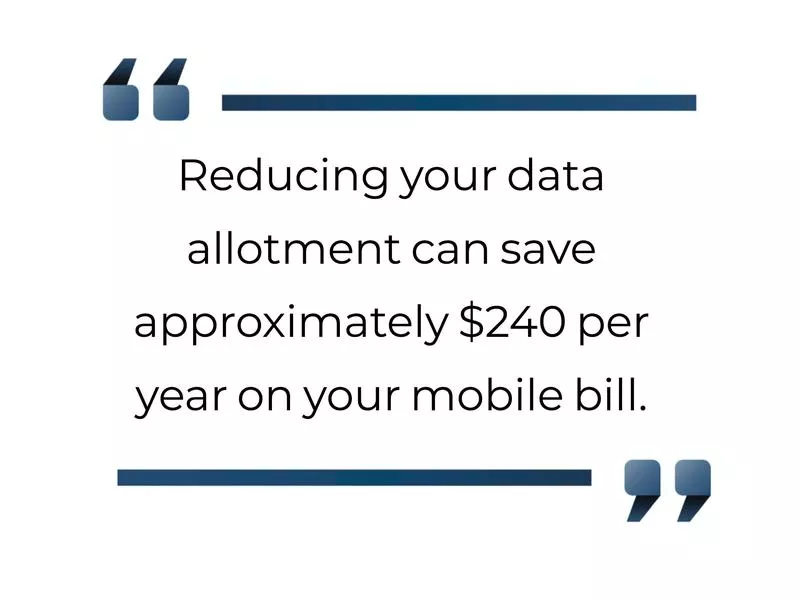
The average smart phone user is paying for more data than they actually use. In fact, Woroch said, 85 percent of us don’t come close to using our monthly data allotment and, on average, we’re wasting $20 a month. She recommends using a third-party app like Onavo Count and 3G Watchdog to monitor your data usage for a month.
“If you uncover excess data that’s not being used, switch to a lower your plan,” Woroch said. “By reducing data allotment, you can save approximately $240 per year on your mobile bill.”
Find A Credit Union

Too many people assume bank fees are just a way of life: on average, we pay $3 to $5 for out-of-network ATM withdrawals, $30 for overdrafts and about $15 if we don’t meet the minimum balance requirement for our account.
Woroch says there is a better way: credit unions. Those fees are often much lower or even nonexistent at a credit union, and most people can find at least one credit union they can join.
“Transferring your checking account to a local credit union will wipe away these useless fees,” Woroch said. “For someone who uses an out-of-network ATM twice a month, overdrafts three times a year and is charged a monthly fee for an interest-based checking account, making the switch could save you approximately $380 annually.”
Cut The Cord
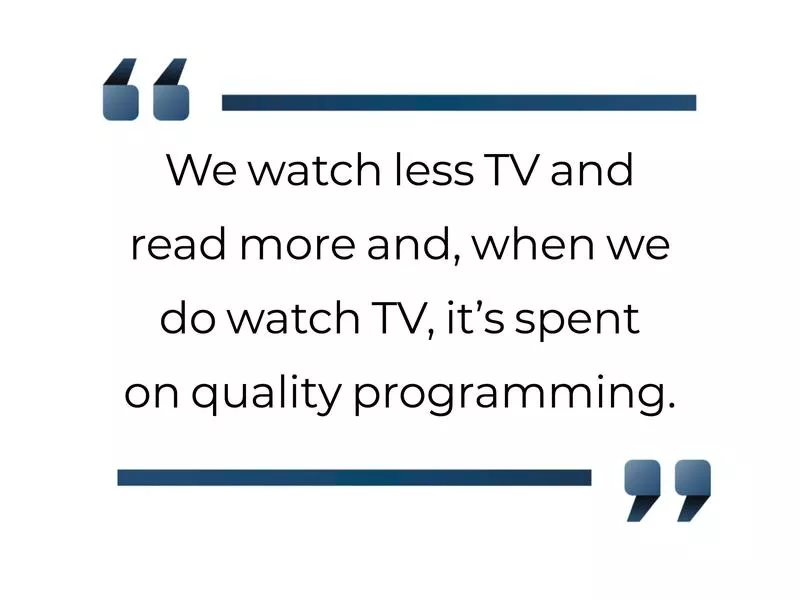
My wife and I canceled our cable subscription two years ago. Even after purchasing a cheap antennae and adding services like Netflix and Hulu for streaming shows and movies, we’re saving $60 a month, or $720 a year.
A big concern was the loss of local news. But with Hulu’s live TV service, or a service like Sling, we still have access to local channels.
An added perk is that we have found ourselves spending less time mindlessly flipping through channels, hoping to find something “good” to watch. We watch less TV and read more and, when we do watch TV, we feel like it’s time spent on quality programming.
Sober Up (Or Drink At Home)
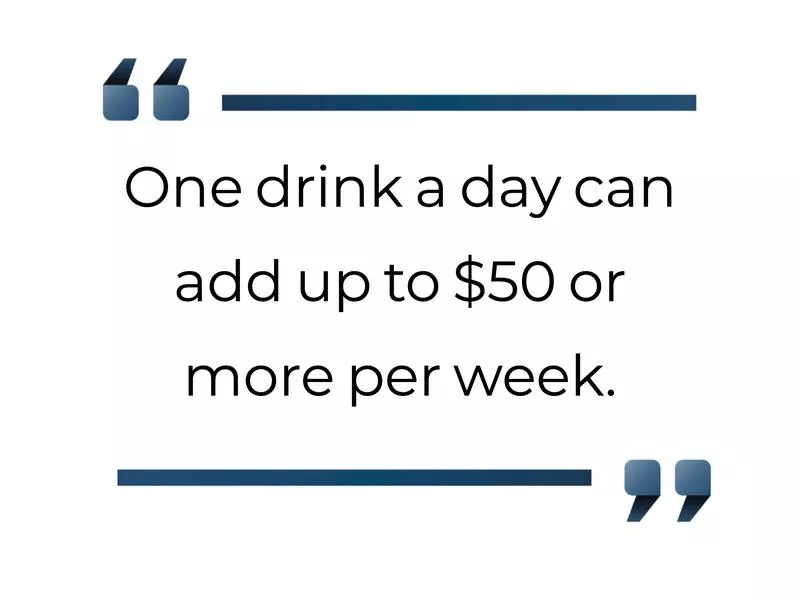
The margins on alcohol is about 90 percent for a single drink at a bar or restaurant.
Beyond the health benefits, cutting down on the amount of alcohol you consume can add up to a lot of savings in a short amount of time.
Even one drink a day can add up to $50 or more per week if you take those drinks out of the home.
It’s Okay to Cancel the Gym Membership
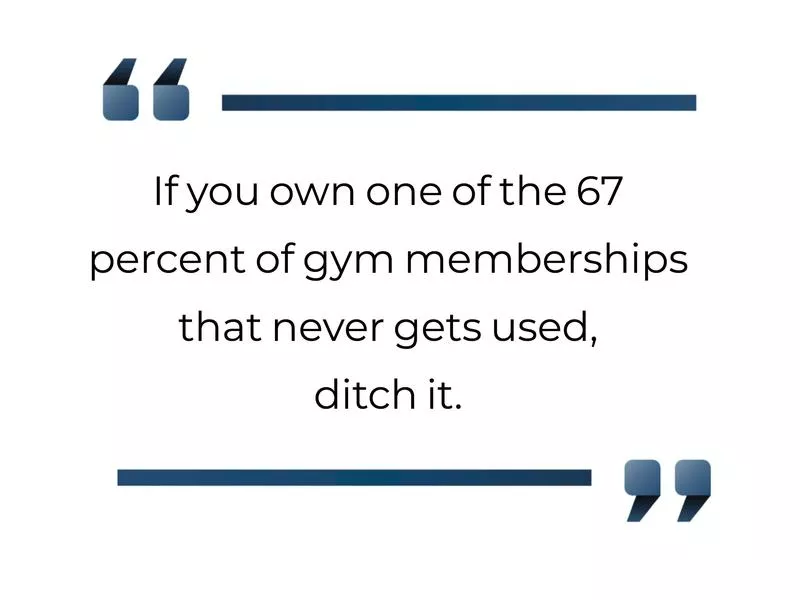
If everyone who had a gym membership showed up to use the gym, you’d never get your workout in because it would be too crowded. Gyms count on people signing up for memberships with automatic membership dues debits each month and then feeling too guilty or too optimistic that they’ll start working out this month to cancel.
Yes, you should exercise, and exercise regularly, and if you use your gym membership a few times a week, you should keep it. But if you own one of the 67 percent of gym memberships that never gets used, Woroch offers some suggestions.
“Inquire about a punch pass first so you can pay-as-you-go before committing to a year-long membership — this may end up being a cheaper option in the long run. Otherwise, bounce between gyms and specialty exercise studios by taking advantage of free introductory passes and work out outdoors for free during the spring and summer months,” she said. “Considering the average monthly gym fees costs $58 per month, you stand to save nearly $700 a year.”
Host An Exchange Student
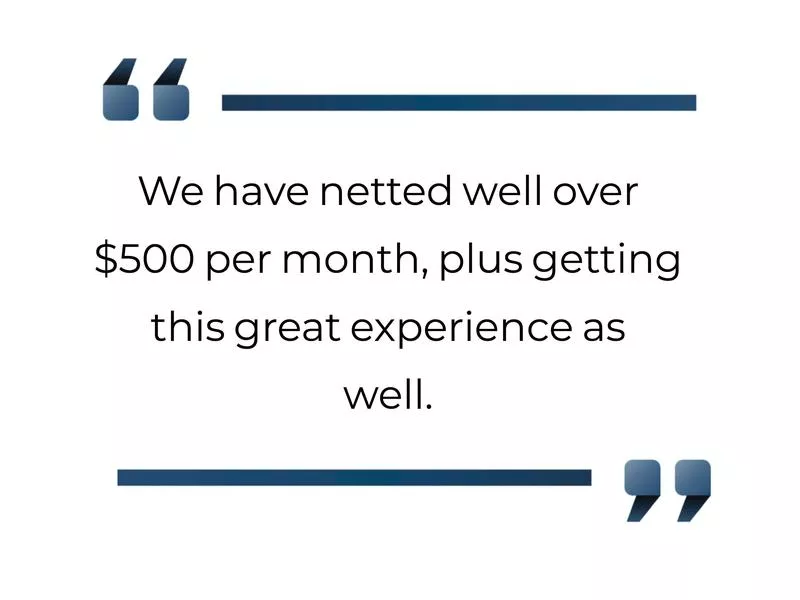
When Denise Supplee, a realtor, and her husband became empty nesters, they wanted to keep their home but they also wanted to set aside more money for their retirement. Supplee saw an advertisement to host an exchange student.
“It paid us a decent stipend of $1,200 per month,” she said. “After the cost of feeding an extra mouth, and other bills, we feel we have netted well over $500 per month, plus getting this great experience as well.”